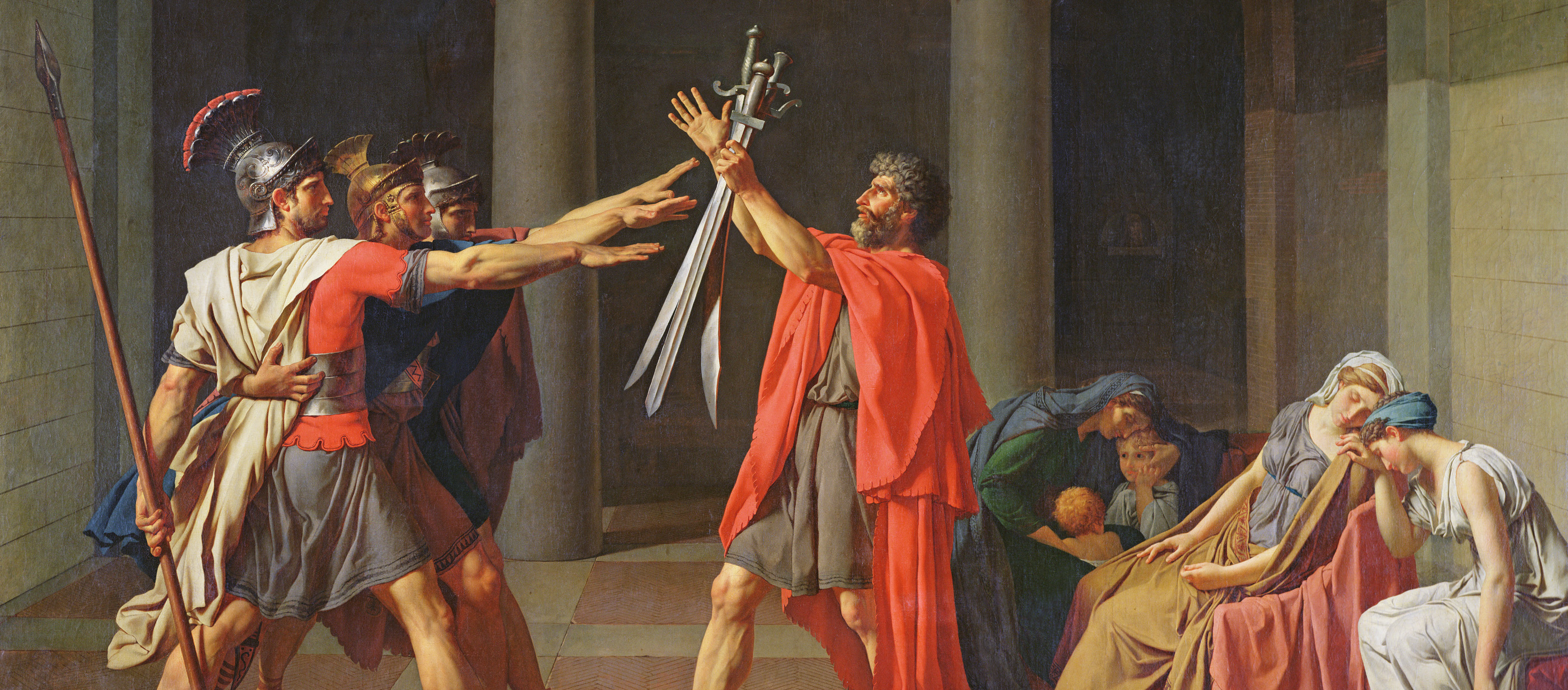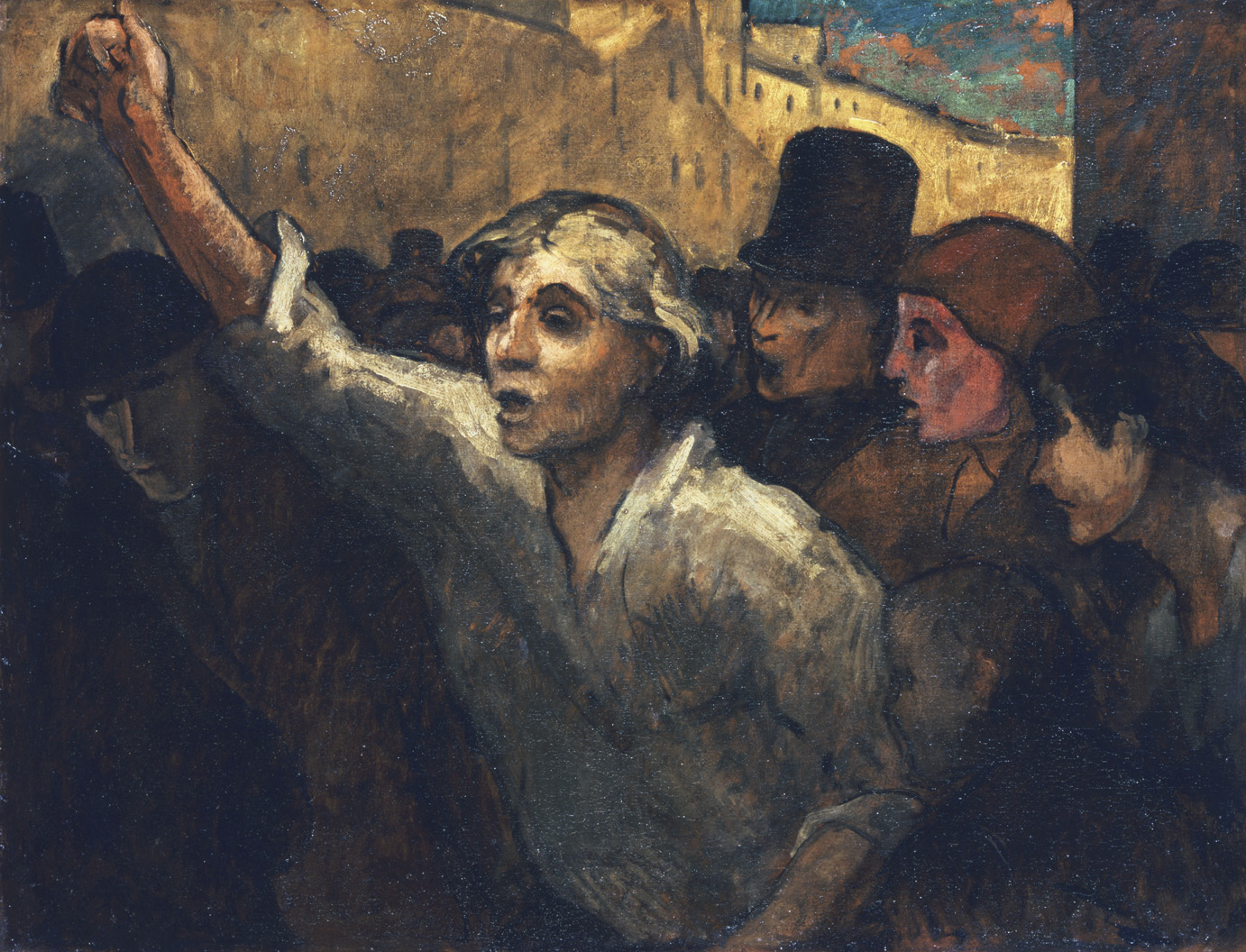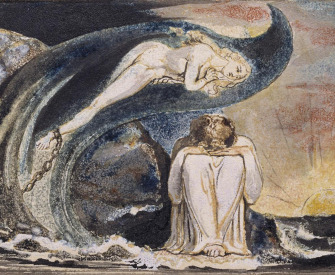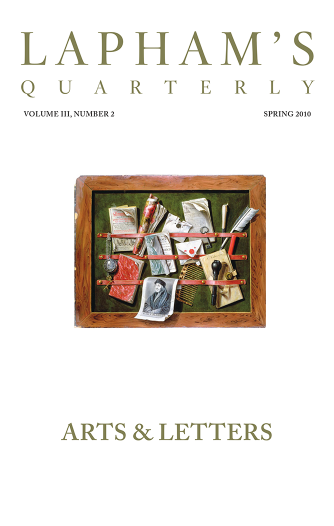When Jesus entered Jerusalem, the whole city was in turmoil, asking, “Who is this?” The crowds were saying, “This is the prophet Jesus from Nazareth in Galilee.”
Then Jesus entered the temple and drove out all who were selling and buying in the temple, and he overturned the tables of the moneychangers and the seats of those who sold doves. He said to them,
It is written,
“My house shall be called a house of prayer,”
but you are making it a den of robbers.
The blind and the lame came to him in the temple, and he cured them. But when the chief priests and the scribes saw the amazing things that he did and heard the children crying out in the temple, “Hosanna to the Son of David,” they became angry and said to him, “Do you hear what they are saying?” Jesus said to them, “Yes—have you never read, ‘Out of the mouths of infants and nursing babies / you have prepared praise for yourself’?”
He left them, went out of the city to Bethany, and spent the night there.
In the morning, when he returned to the city, he was hungry. And seeing a fig tree by the side of the road, he went to it and found nothing at all on it but leaves. Then he said to it, “May no fruit ever come from you again!” And the fig tree withered at once. When the disciples saw it, they were amazed, saying, “How did the fig tree wither at once?” Jesus answered them, “Truly I tell you, if you have faith and do not doubt, not only will you do what has been done to the fig tree, but even if you say to this mountain, ‘Be lifted up and thrown into the sea,’ it will be done. Whatever you ask for in prayer with faith, you will receive.”
When he entered the temple, the chief priests and the elders of the people came to him as he was teaching and said, “By what authority are you doing these things, and who gave you this authority?” Jesus said to them, “I will also ask you one question; if you tell me the answer, then I will also tell you by what authority I do these things. Did the baptism of John come from heaven, or was it of human origin?” And they argued with one another, “If we say, ‘From heaven,’ he will say to us, ‘Why then did you not believe him?’ But if we say, ‘Of human origin,’ we are afraid of the crowd; for all regard John as a prophet.” So they answered Jesus, “We do not know.” And he said to them, “Neither will I tell you by what authority I am doing these things.

The Oath of the Horatii, by Jacques-Louis David, 1784. Louvre, Paris, France.
“What do you think? A man had two sons; he went to the first and said, ‘Son, go and work in the vineyard today.’ He answered, ‘I will not,’ but later he changed his mind and went. The father went to the second and said the same, and he answered, ‘I go, sir,’ but he did not go. Which of the two did the will of his father?” They said, “The first.” Jesus said to them, “Truly I tell you, the tax collectors and the prostitutes are going into the kingdom of God ahead of you. For John came to you in the way of righteousness and you did not believe him, but the tax collectors and the prostitutes believed him; and even after you saw it, you did not change your minds and believe him.
“Listen to another parable. There was a landowner who planted a vineyard, put a fence around it, dug a winepress in it, and built a watchtower. Then he leased it to tenants and went to another country. When the harvest time had come, he sent his slaves to the tenants to collect his produce. But the tenants seized his slaves and beat one, killed another, and stoned another. Again he sent other slaves, more than the first, and they treated them in the same way. Finally he sent his son to them, saying, ‘They will respect my son.’ But when the tenants saw the son, they said to themselves, ‘This is the heir; come, let us kill him and get his inheritance.’ So they seized him, threw him out of the vineyard, and killed him. Now when the owner of the vineyard comes, what will he do to those tenants?” They said to him, “He will put those wretches to a miserable death, and lease the vineyard to other tenants who will give him the produce at the harvest time.”
Jesus said to them, “Have you never read in the scriptures:
The stone that the builders rejected
has become the cornerstone;
this was the Lord’s doing,
and it is amazing in our eyes.
Therefore I tell you, the kingdom of God will be taken away from you and given to a people that produces the fruits of the kingdom. The one who falls on this stone will be broken to pieces, and it will crush anyone on whom it falls.”
When the chief priests and the Pharisees heard his parables, they realized that he was speaking about them. They wanted to arrest him, but they feared the crowds, because they regarded him as a prophet.
Then the Pharisees went and plotted to entrap him in what he said. So they sent their disciples to him, saying, “Teacher, we know that you are sincere and teach the way of God in accordance with truth, and show deference to no one, for you do not regard people with partiality. Tell us, then, what you think. Is it lawful to pay taxes to the emperor, or not?” But Jesus, aware of their malice, said, “Why are you putting me to the test, you hypocrites? Show me the coin used for the tax.” And they brought him a denarius. Then he said to them, “Whose head is this, and whose title?” They answered, “The emperor’s.” Then he said to them, “Give therefore to the emperor the things that are the emperor’s, and to God the things that are God’s.” When they heard this, they were amazed—and they left him and went away.

The Uprising, by Honoré Daumier, c. 1848. The Philips Collection, Washington D.C.
The same day some Sadducees came to him, saying there is no resurrection, and they asked him a question, saying, “Teacher, Moses said, ‘If a man dies childless, his brother shall marry the widow, and raise up children for his brother.’ Now there were seven brothers among us; the first married, and died childless, leaving the widow to his brother. The second did the same, so also the third, down to the seventh. Last of all, the woman herself died. In the resurrection, then, whose wife of the seven will she be? For all of them had married her.”
Jesus answered them, “You are wrong, because you know neither the scriptures nor the power of God. For in the resurrection they neither marry nor are given in marriage, but are like angels in heaven. And as for the resurrection of the dead, have you not read what was said to you by God, ‘I am the God of Abraham, the God of Isaac, and the God of Jacob’? He is God not of the dead, but of the living.” And when the crowd heard it, they were astounded at his teaching.
When the Pharisees heard that he had silenced the Sadducees, they gathered together, and one of them, a lawyer, asked him a question to test him. “Teacher, which commandment in the law is the greatest?” He said to him, “‘You shall love the Lord your God with all your heart, and with all your soul, and with all your mind.’ This is the greatest and first commandment. And a second is like it: ‘You shall love your neighbor as yourself.’ On these two commandments hang all the law and the prophets.”
From the Gospel According to Matthew. As the first book of the New Testament, this gospel contains some of Jesus’ best-known and most radical sayings, among them “It is easier for a camel to go through the eye of a needle than for someone who is rich to enter the kingdom of God”; “If anyone strikes you on the right cheek, turn the other one also”; “I say to you that everyone who looks at a woman with lust has already committed adultery with her in his heart”; and “Blessed are the meek, for they shall inherit the earth.”
Back to Issue





